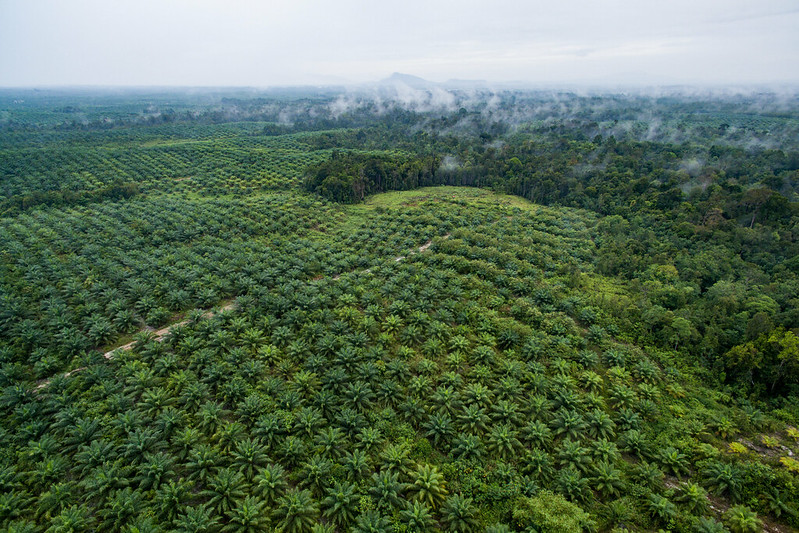Colombo's palm oil paradox
Despite officially banning palm oil cultivation in 2021 due to its environmental impact, large companies involved in this market continue their activities in the country, where consumption of this ingredient remains high. The measure ultimately discourages the introduction of new plant varieties that could represent a solution to the problem, as they have a more limited impact on water resources.
Colombo (AsiaNews) - One of the mafia of large companies that do not consider the impact on the environment. A general ban that ultimately only harms new, environmentally friendly crops. This sums up the paradox surrounding palm oil in Sri Lanka.
There are 13,000 acres of land in the country cultivated by private owners for this purpose, with the stated goal of soon reaching 20,000 acres. This is despite the fact that in 2021, the Central Environment Authority (CEA) banned the cultivation of palm oil following numerous public complaints. However, the main companies continue their large-scale activities.
Palm oil is a key ingredient in many food products. It currently accounts for 75% of the country's edible oil consumption, while coconut oil accounts for only 25%.
However, legal barriers preventing the creation of new plantations that would use newly developed varieties could lead to the collapse of these industries, with Sri Lanka potentially finding itself importing 500 tonnes of palm oil per day. Currently, the country produces 30% of its palm oil needs and, by expanding cultivation to 20,000 acres, could reach 50%. The main palm oil producers and importers are preparing to source 45-50% of the country's needs from suppliers in Indonesia and Malaysia.
In 2021, a select committee was appointed to address the issue, comprising representatives from the Ministry of Plantation Industries, the Faculty of Agriculture at the University of Peradeniya, the Sri Lanka Rubber Research Institute, the Mahaweli Development and Environment Authority, the Sri Lanka Coconut Research Institute and the National Plantation Management Institute.
Key stakeholders associated with this issue were also involved in the process.
The crux of the matter was addressing the serious environmental costs of this production. Nishantha Ratnaweera and Kanthi Alwis, experts in the agricultural sector, explain to AsiaNews that ‘ based on case studies and survey data from relevant areas and international research reports, large-scale oil palm cultivation, which poses threats to traditional plantation crops such as coconut, rubber and tea, has been assessed with a view to cultivating more environmentally and socially sustainable varieties.’
According to the main findings, a mature oil palm has an evaporation and transpiration rate of 500-600 litres per day during the dry season and about 400 litres per day on other days. Palm oil cultivation has a significant impact on groundwater sources, including the rapid depletion and drying up of wells and watercourses in cultivation areas during the dry season.
Meanwhile, in 2021, the University of Peradeniya and the University of Moratuwa conducted a joint study to determine whether palm oil cultivation could be carried out without causing environmental damage. The research, completed in 2023, led to the introduction of eco-friendly varieties.
Although pollution and water depletion were previously problems due to palm oil cultivation, these new varieties have been designed to allow water to be reused without contamination.
The researchers extracted the water-soluble components from the new palm oil variety, prepared a food product and evaporated the water to validate the success of the experiment.
However, Sri Lanka has not yet put the results into practice, while other countries have begun to study the results of the Sri Lankan universities' research.
Agronomists Amanda Pathiraja and Neville Dissanayaka believe that ‘although research conducted by the universities of Peradeniya and Moratuwa has popularised new varieties of palm oil among farmers and initiated new cultivation efforts, the total ban on palm oil cultivation will wipe out this industry in the country within the next 3-4 years.
As a result, the country will have to import 500 tonnes of palm oil per day, at an estimated cost of million per day. This product is in high demand on the global market; promoting environmentally friendly palm oil cultivation is the most effective way to strengthen the national economy.’
Photo: Flickr /CIFOR-ICRAF
11/08/2017 20:05







.png)










